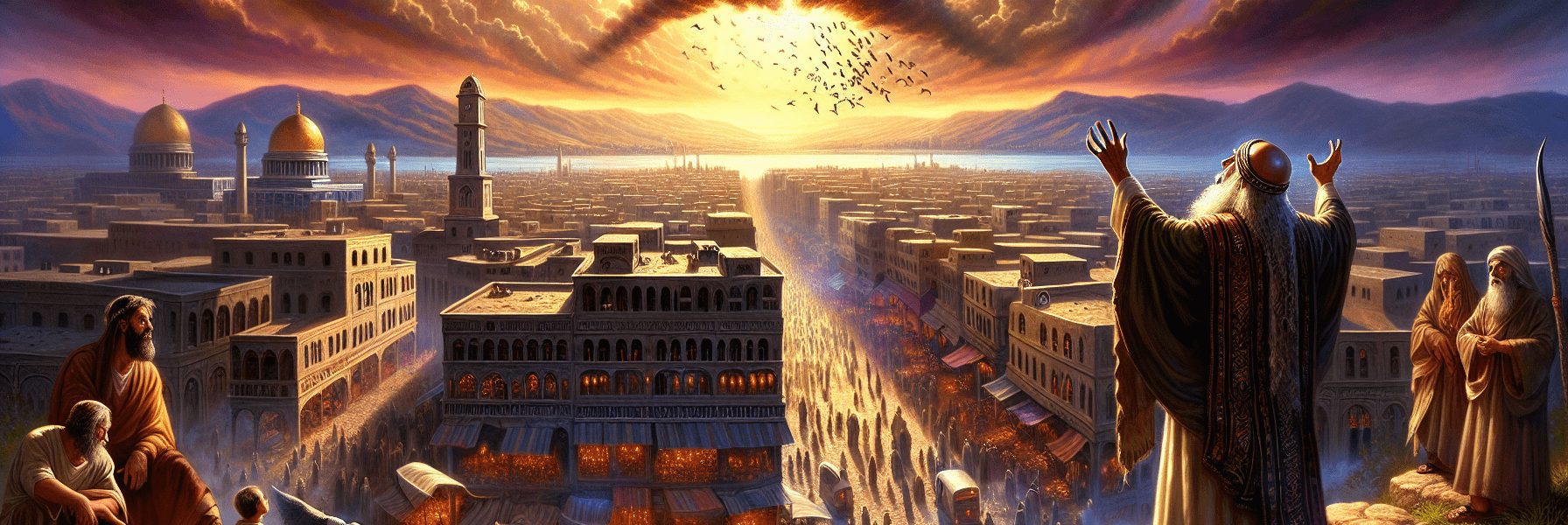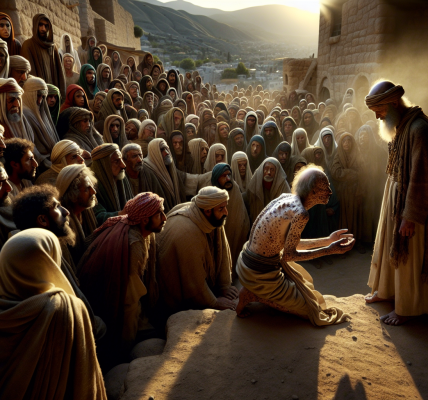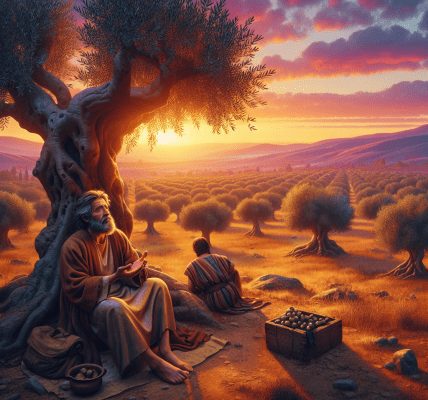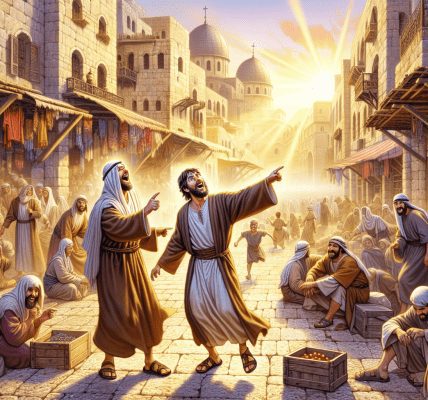**The Vision of Isaiah: A Call to Repentance**
The sun hung low over the kingdom of Judah, casting long shadows across the hills of Jerusalem. The city, once radiant with the favor of the Lord, now stood under a heavy silence, its people wandering far from the ways of righteousness. The streets bustled with merchants and travelers, but their hearts were far from God.
In the midst of this spiritual decay, the word of the Lord came to Isaiah, son of Amoz—a vision concerning Judah and Jerusalem. The heavens seemed to part as the voice of the Almighty thundered forth, shaking the prophet’s very soul.
*”Hear, O heavens, and give ear, O earth! For the Lord has spoken: ‘Children have I reared and brought up, but they have rebelled against Me.’”*
Isaiah’s heart ached as the words poured forth. The Lord’s chosen people—the nation He had carried through the wilderness, the people He had called His own—had turned away like a stubborn ox refusing the yoke. Their sins weighed heavy upon the land, a stench rising to the heavens.
The prophet lifted his eyes toward the city, its walls strong, its temple still standing in grandeur. Yet within, corruption festered. The rulers were no better than thieves, taking bribes and neglecting justice. The poor cried out, but no one listened. The priests performed their rituals with empty hearts, their sacrifices meaningless, their incense an abomination before God.
*”What to Me is the multitude of your sacrifices?”* the Lord declared. *”I have had enough of burnt offerings of rams and the fat of well-fed beasts. I do not delight in the blood of bulls, or of lambs, or of goats.”*
Isaiah trembled at the rebuke. The people thought their outward acts of worship would satisfy God, but their hands were stained with blood—not of sacrifices, but of injustice. They fasted, yet oppressed the weak. They prayed, yet ignored the cries of the orphan and the widow.
Then, like a sudden break in storm clouds, the voice of the Lord softened, not with indulgence, but with mercy.
*”Wash yourselves; make yourselves clean; remove the evil of your deeds from before My eyes; cease to do evil, learn to do good; seek justice, correct oppression; bring justice to the fatherless, plead the widow’s cause.”*
A glimmer of hope shone through the darkness. Though their sins were as scarlet, they could yet be washed white as snow. Though they had rebelled, the Lord still called them to return. But the choice was theirs—obedience would bring blessing, but stubbornness would bring the sword.
Isaiah lifted his voice in warning and in hope, crying out to the princes of Judah, to the priests, to the people in the streets:
*”If you are willing and obedient, you shall eat the good of the land; but if you refuse and rebel, you shall be devoured by the sword; for the mouth of the Lord has spoken.”*
The vision faded, but the weight of it remained. The city of Jerusalem stood at a crossroads—judgment or mercy, destruction or restoration. And the prophet knew that the time to choose was now.



